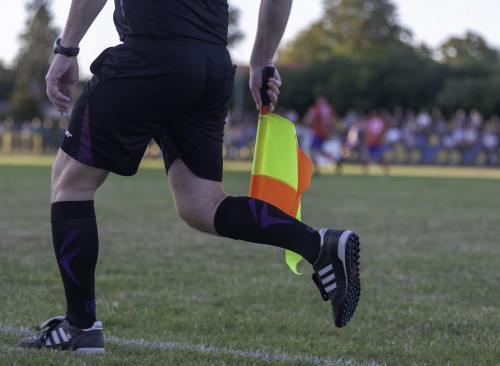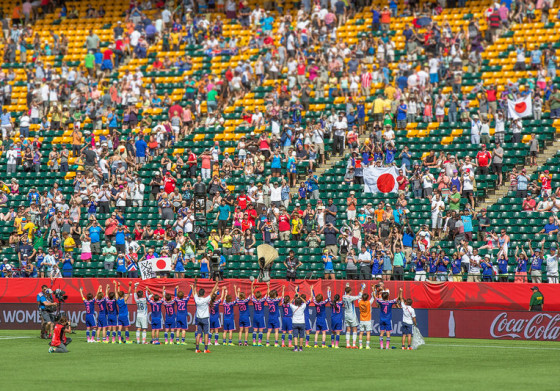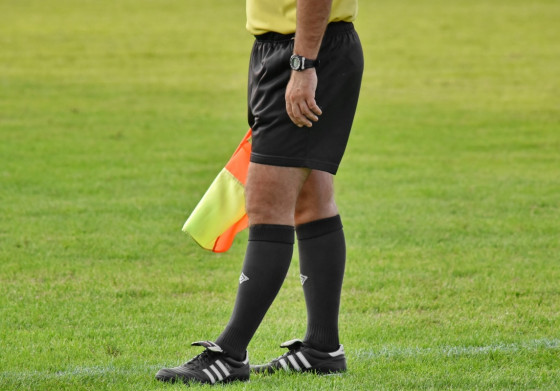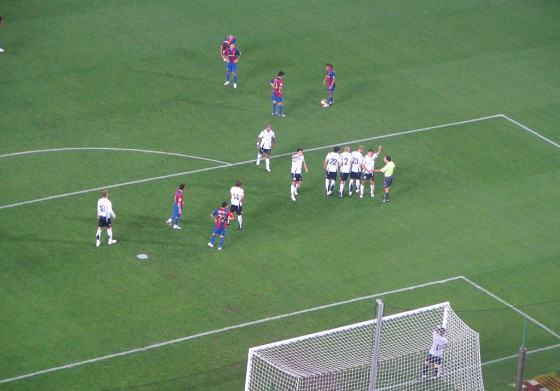The Vital Role of Assistant Referees
While the spotlight often falls on the referee and the players during a football match, it is important not to overlook the crucial contributions of the assistant referees. These unsung heroes play a pivotal role in ensuring the smooth running of the game and upholding the integrity of the sport. In this article, we will delve into the work of assistant referees and shed light on their responsibilities and the impact they have on the outcome of a match.
1. Pre-Match Preparation:
Assistant referees begin their work even before the game kicks off. They collaborate with the referee to review pre-match information, such as team line-ups, any specific instructions, and potential areas of focus. This preparation allows them to align their decisions with the referee's vision and ensure consistency throughout the match.

2. Offside Decisions:
One of the primary responsibilities of assistant referees is to monitor offside situations. They position themselves on the touchlines, in line with the second-to-last defender, to judge whether an attacking player is in an offside position when the ball is played. Their keen eyesight and positioning enable them to make accurate decisions, helping maintain fairness in the game.
3. Fouls and Incidents:
Assistant referees also assist the referee in identifying fouls and other incidents that may have occurred outside their field of vision. They closely monitor play near the touchlines, paying attention to challenges, fouls, and incidents that could impact the flow and fairness of the match. Their observations and input contribute to the referee's decision-making process.
4. Signals and Communication:
Assistant referees communicate with the referee through a system of signals. These signals include raising the flag to indicate offside, signaling for fouls or misconduct, and indicating the direction of throw-ins, goal kicks, or corner kicks. Clear and effective communication between the referee and assistant referees is essential in maintaining order and ensuring accurate decision-making.
5. Video Assistant Referee (VAR) Assistance:
In matches where Video Assistant Referee (VAR) technology is employed, assistant referees play a crucial role in supporting the VAR officials. They provide real-time information, insights, and additional camera angles to aid the VAR officials in making accurate and fair decisions. Their cooperation enhances the overall effectiveness of the VAR system.
6. Match Control and Fair Play:
Assistant referees contribute significantly to maintaining match control and promoting fair play. They keep a watchful eye on players' behavior, such as unsporting conduct, dissent, or encroachment during set-pieces, and promptly signal the referee when such incidents occur. Their vigilance helps uphold the values of sportsmanship and ensures the game is played within the rules.
Conclusion:
While the referee often receives the limelight, assistant referees play an indispensable role in the smooth running of a football match. From judging offside situations to assisting in the identification of fouls and incidents, their expertise and attentiveness significantly impact the outcome of the game. The work of assistant referees highlights the collaborative nature of refereeing and underscores the importance of their presence on the field. Their dedication and commitment to fair play contribute to the excitement and integrity of the beautiful game we all love.




